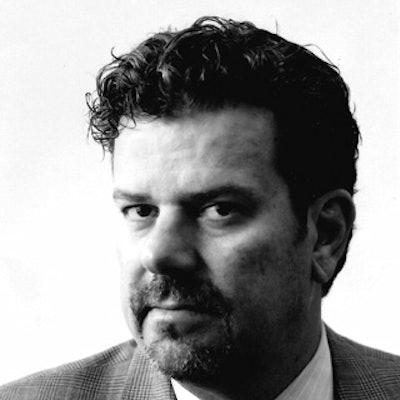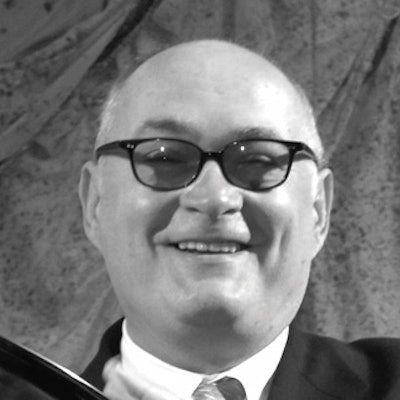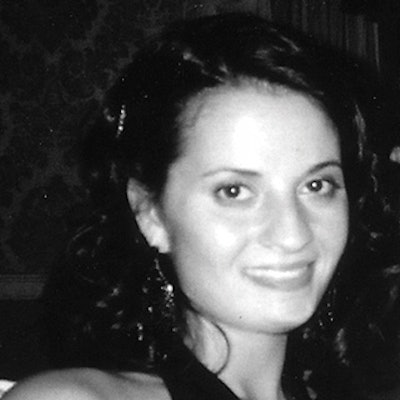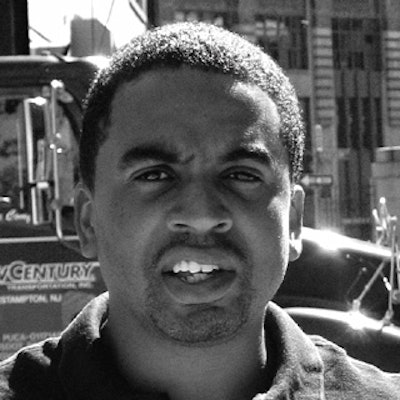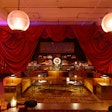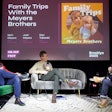A Planner: Peter Rosenberger is vice president of special events marketing at ESPN and plans internal and external events ranging from sales meetings to hospitality parties for the ESPY awards. "A lot of it is done by feel. If you're in any environment—at an event, at a club—and you like the DJ, get his card and keep it on record. I saw a DJ at Disney World of all places and thought, 'Man, he is good.' He was in lockstep with his audience, and that's what a DJ is all about. If he's just into spinning his own thing, that's really bad. You don't want the DJ that only spins dance music you've never heard before and you don't want the DJ who only spins 'Celebrate Good Times' and 'Once, Twice, Three Times a Lady.' You want something in the middle where there is some familiarity to strike that cord, but not the [same old thing]."
A DJ: Tom Finn is owner of Topspin Entertainment and has been a professional DJ since 1982; 80's nightclubs Heartbreak and the Palladium were his regular gigs, and he can now be found spinning at private New York society affairs and high-profile fund-raisers. "The biggest mistake people make is using a friend of a friend. Look for somebody who has been in the business for a while, not someone who wants to be a record producer and doesn't give a rat's ass about DJing. Look for a track record, a documented resume, and letters of recommendation. Check out their Web site, and do an interview. You don't necessarily want to go with a big name who is not a dedicated party DJ and is more into being super hip and cool. The best possible thing is to get a recommendation from someone you trust who has seen them doing a great party. You can try to go and see them, but this is not always the best, because they may not be doing an event like yours. Getting a CD is not applicable either, because they react to the crowd. Having all the music in the world doesn't make you a good DJ either."
A Club Manager: Lee Blumer, events director at Crobar, hires DJs for events where planners haven't hired their own DJs. "The most important thing is how old your audience is and whether you're trying to kill them with music or not. It is different hiring a DJ for a party as opposed to hiring a DJ for being an artist. Don't let a DJ's ego override the event. Mostly these guys are meant to be background, and that requires a certain understanding on their part. A couple of times we have had a problem with a DJ someone brought to an event who would not turn the music down. A DJ needs to understand a cocktail party is not meant to center on the music—people need to be able to speak. They have to be sensitive to that people want and how to start the night, keep people dancing, and end the night. Jazz works to start the night, because it allows people to introduce themselves. As the volume of conversation goes up and they head to the bar, the volume can slide up with it. After dinner, when people begin to laugh and become more jovial, people are ready to move on to the next stage and start dancing. For the name value of a DJ you could spend $50,000, but you don't really need to do that for an average party. It's usually $500 and up, sometimes less."
A Planner: Kristen Prinzo is promotions manager at Surface magazine, and hires DJs for events ranging from food tastings to the Avant Guardian touring exhibit of emerging fashion photographers. "I usually find DJs by word of mouth. I like to have them send me a set list and digital files of their music. I listen to what kinds of music they have, what genres they play, and how versatile they are. I always tell the DJ what kind of people are going to be there, because we have different crowds at our events. One crowd is more mellow, one crowd is more up for a big bash, and the DJ will play accordingly. I also have him change the music throughout the night from more mellow in the beginning to peaking in the middle and then going back down."
A DJ Manager: Damon DeGraff is C.E.O. of DGI Management, a talent management company that books several big-name DJs, including Mark Ronson, Beverly Bond, and DJ Cassidy, for affairs ranging from high-end fashion events to magazine promotions. "Ideally, you want somebody with some sort of a name to give cachet to an event, someone who has proven themselves in the event world as being good at what they do. For Mark Ronson or DJ Cassidy, people know them for what they do and what they bring to your event. If planners don't want a big-name DJ, they really need to know what vibe they are going for. I ask clients, 'What's the crowd, the age group, the vibe—is it cocktails or dancing?' to match a DJ to their event. If they want a rock 'n' roll vibe, I need to know in advance, or else when the DJ shows up, he may not have any rock 'n' roll records with him."
A Planner: Jed Stiller is president of ENSM Marketing, an event planning company that works on events from celebrity birthday parties to corporate events and also books DJs for weekly parties in New York and Miami clubs like Lotus and PM. "First, for a fund-raiser or an event you want a lot of people at, book a DJ with a big name, who has an affiliation with something like MTV or Last Call With Carson Daly, or who plays high-profile clubs and will draw a lot of people. Second, make sure the DJ has quality music and plays music that will appeal to a lot of people to keep them there all night. Third, fit the DJ into the budget, but remember it is as important an element as the venue. The venue needs to be really nice, but it's the DJ that will keep them there."
—Ellen Sturm Niz
Posted 09.19.05
